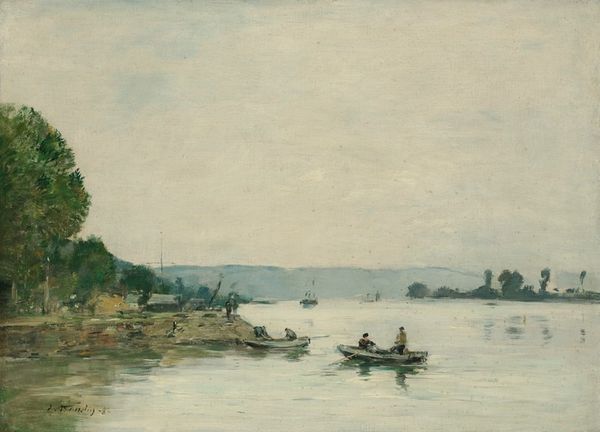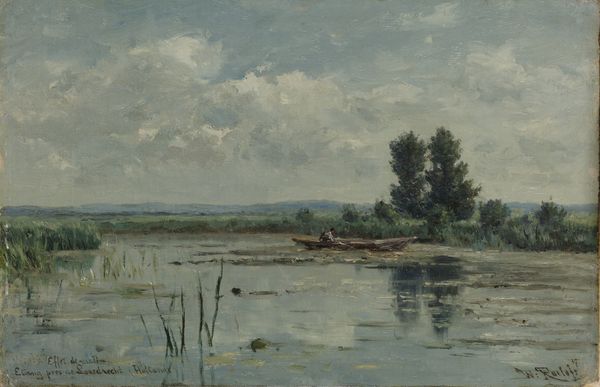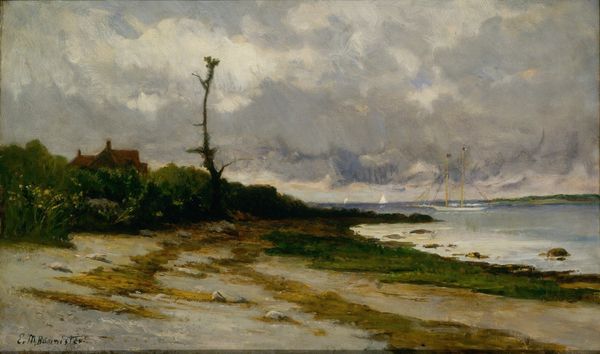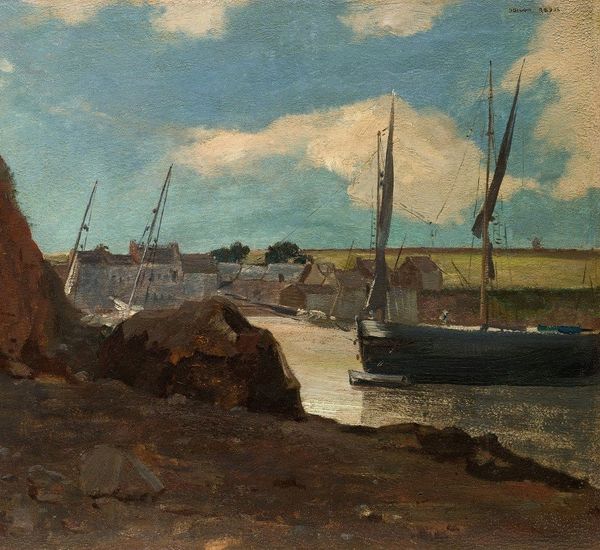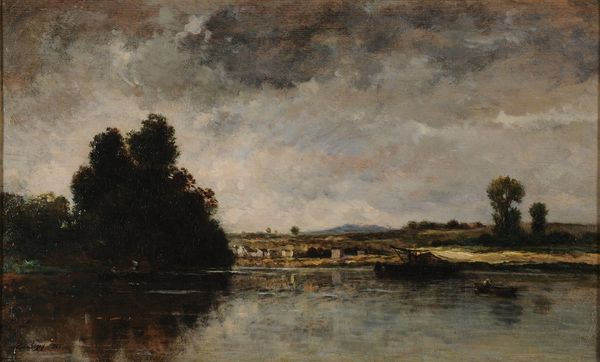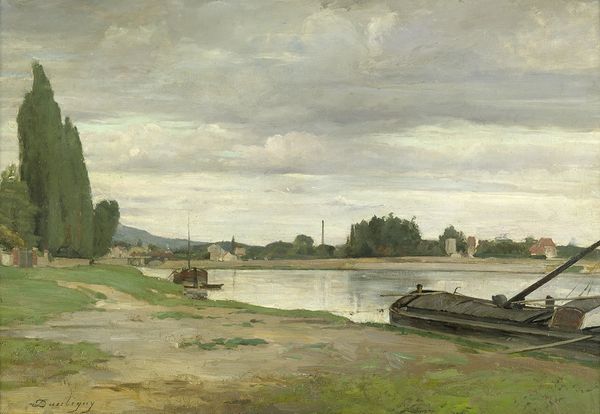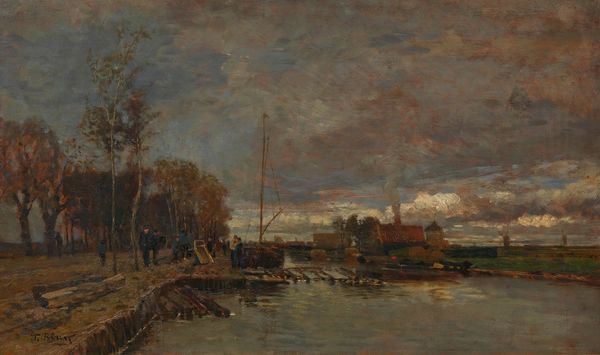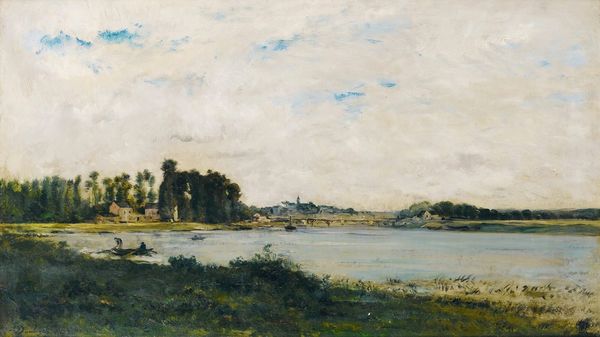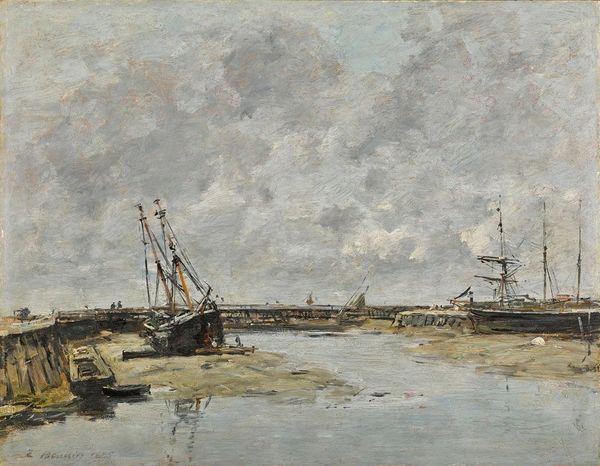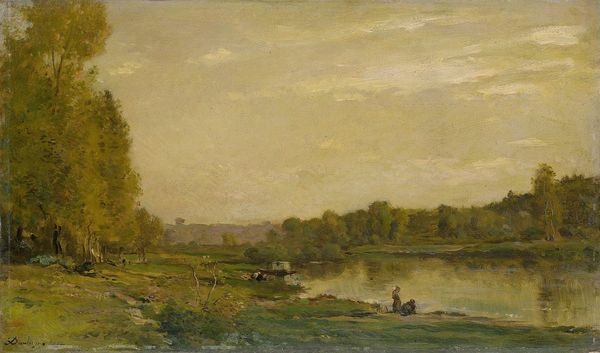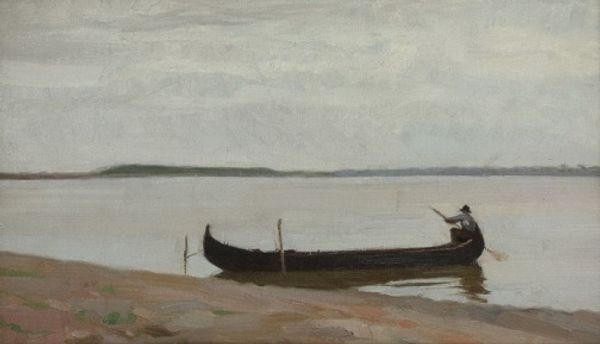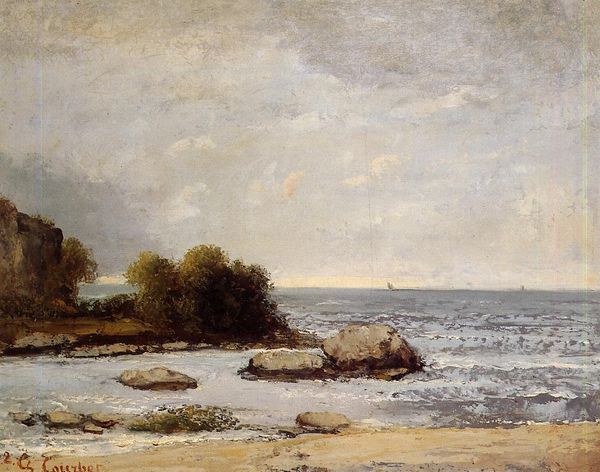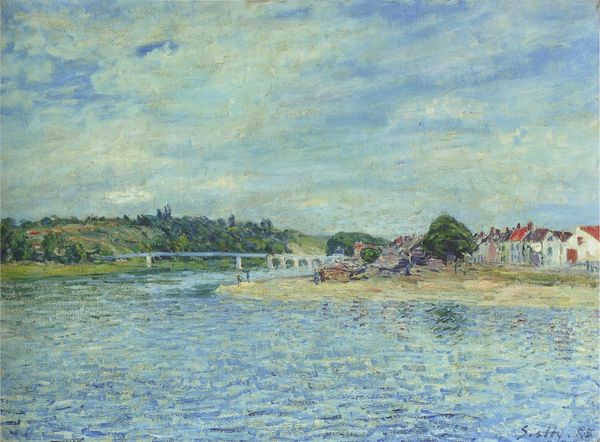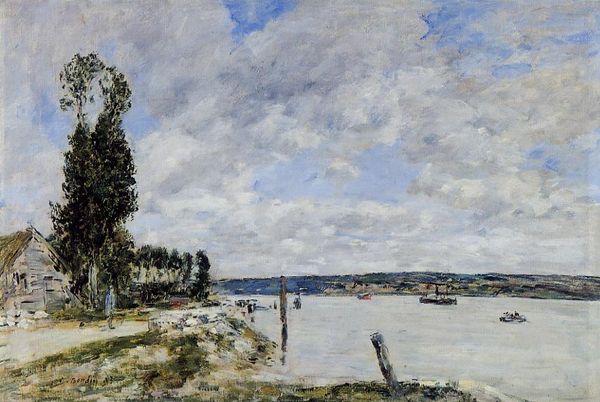
painting, plein-air, oil-paint
#
painting
#
impressionism
#
plein-air
#
oil-paint
#
landscape
#
oil painting
#
genre-painting
#
watercolor
#
realism
Dimensions: height 24.5 cm, width 45.5 cm, depth 9 cm
Copyright: Rijks Museum: Open Domain
Editor: Here we have Willem Roelofs' "The Bridge over the IJssel near Doesburg", painted in 1889 with oils. It's such a serene scene, but something about the muted colors and heavy sky gives it a slightly melancholic feel. What do you see in this piece? Curator: Well, immediately my eye is drawn to the symbolic weight of the bridge itself. Bridges, throughout art history, often represent connection, transition, a link between two states of being. But here, it's 'over' the IJssel. The focus isn't on crossing, but on the liminal space itself. Doesn’t the low horizon feel heavy with the weight of that cloudy sky? Editor: Absolutely, it feels like the clouds are pressing down. Curator: Right. Consider those clouds not just as atmospheric phenomena, but as visual metaphors. Clouds, psychologically, can symbolize obscurity, the unknown, even a kind of emotional burden. Their reflection in the water further amplifies this feeling. What stories do you imagine those figures are experiencing on their boats? Editor: They seem isolated, each in their own vessel… maybe contemplating something? Curator: Precisely. Roelofs is using these small figures almost as ciphers. Each boat becomes its own little world of private thought, set against the vastness of nature. Look at how the artist uses light—not for brilliant illumination, but to suggest the subtleties of internal states. This play of light and shadow… do you sense a deeper emotional or perhaps even spiritual longing present within the landscape? Editor: Now that you mention it, yes. It’s less about depicting a physical place, and more about evoking a feeling, a mood. It seems to ask for our introspection. Curator: Indeed. Roelofs isn't merely painting a landscape; he’s crafting an emotional and psychological space for the viewer. Hopefully we all feel encouraged to engage in a period of deep reflection. Editor: That's fascinating. I never considered landscape painting could be so deeply psychological. I will not see it in the same light going forward.
Comments
No comments
Be the first to comment and join the conversation on the ultimate creative platform.
